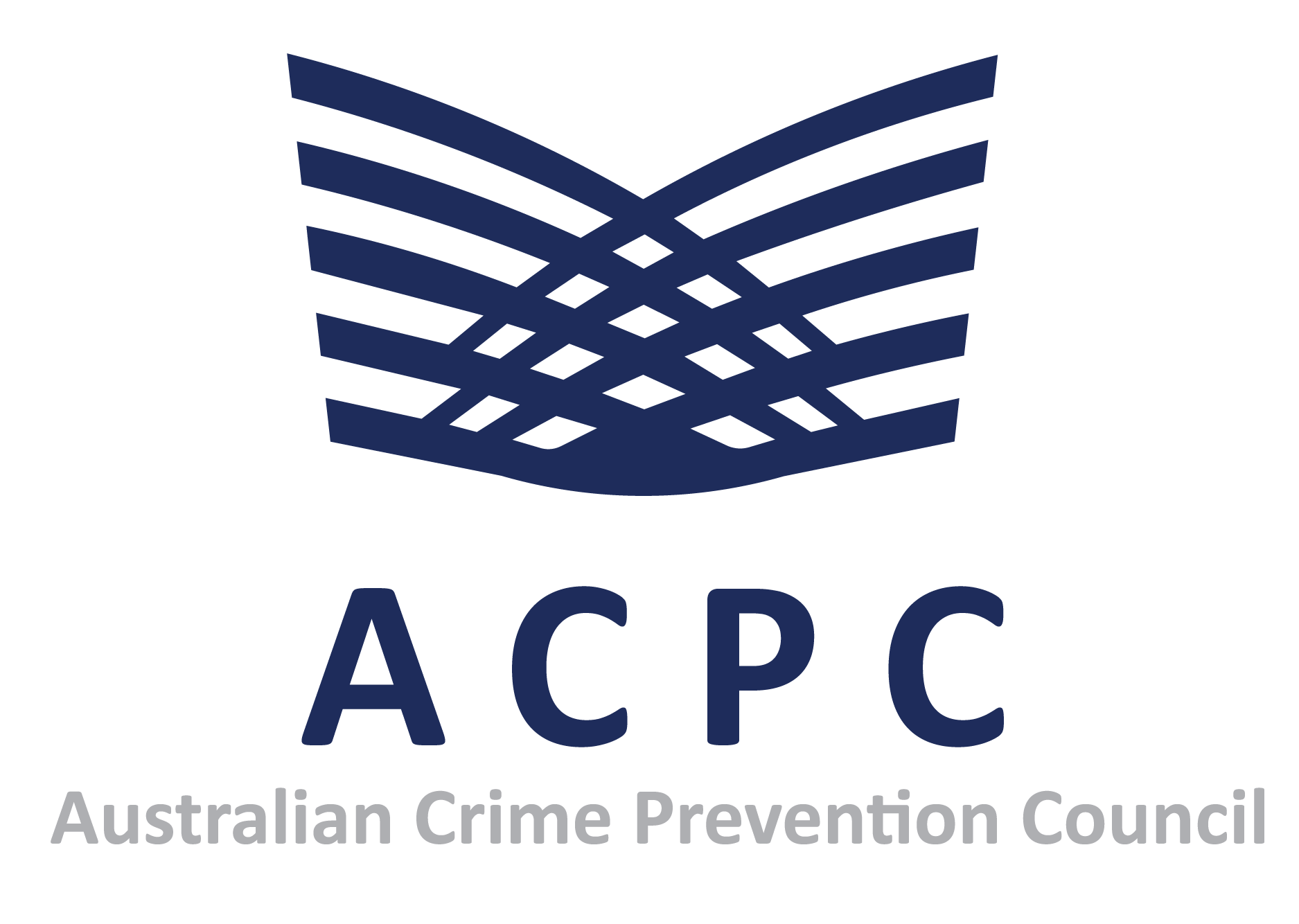
1 The Initiative (Program)
The Australian Crime Prevention Council (ACPC or the Council) has initiated a scholarship program aimed at:
(i) increasing awareness, knowledge, objectives and benefits of crime prevention and
(ii) promoting research and practical community-based crime prevention programs.
Scholarships are available to individuals and groups throughout Australia and the Asia-Pacific region.
Scholarships will be awarded on an annual basis with successful applicants selected on merit by the Council’s Executive. The selection process is not subject to appeal or other challenge.
Up to four (4) scholarships may be awarded annually, each with a monetary value of between $500.00 and $2000.00. In special circumstances, and where funded finances allow, or the project merits, the amount of $2000.00 may be increased.
2 Background to the Program
The ACPC is a voluntary non-government incorporated association, established in Adelaide in 1960, involving a cross section of interests and disciplines. Its objectives include promotion of the prevention of crime and the provision of web-based forums for discussion of issues and methods used to prevent crime and facilitate community safety.
Over past decades the Council has convened, and/or participated in, crime prevention conferences and seminars at State, National and international levels, including the facilitation of regional forums in the Asia-Pacific. Informal links have also been established with member countries of the European Crime Prevention Network (ECPN), specifically with network representatives from Finland, Spain, Italy and Denmark. There is on-going contact with other jurisdictions.
The Council was instrumental in establishing the Australian Institute of Criminology in 1973.
The Council’s scholarship initiative seeks to further community understanding, education, research and practice goals of preventing crime in Australia and/or in overseas countries. We therefore invite national and international individual and/or group applications (participation) in this initiative.
3 Scholarship Applicant Categories
There are five broad scholarship (applicant) categories. These are:
(i) primary and secondary school students whose curriculum and/or activities include matters relating to the prevention of crime, also known as ‘community safety’,
(ii) undergraduate university or Technical and Further Education (TAFE) (or an equivalent international institution,) students whose subjects (units) embrace, or are specific to, the prevention of crime,
(iii) post-graduate students or academic staff whose research, course work or teaching is focussed specifically on the prevention of crime,
(iv) members of the legal profession,
(v) crime risk, criminal investigation and/or crime prevention practitioners, including police and correctional officers whose organisational strategies and/or operations could benefit from crime prevention research and/or practical recommendations.
4 Opportunities and Eligibility to Apply
Individuals or small groups of students, researchers and/or practitioners may apply. They may be Australian citizens, or citizens of an Asia-Pacific country, able to demonstrate how an awarded scholarship would or could (i) benefit their own knowledge, (ii) benefit communities where they reside, study or work and/or, (iii) benefit a wider city, town, village or country’s population.
There are no age, location or gender restrictions, other than those relevant to the above five scholarship categories. Applications must be submitted in English and scholarship outcomes submitted in English.
An applicant’s topic or theme should be discussed (a) with their supporting institution organisation in the first instance and (b) expressed clearly within the Scholarship Application Form. Clarifying or suggested refinement of a topic may be of assistance to an applicant. It will be up to the supporting and nominating institution or workplace to negotiate topic clarity with an applicant prior to an application being received by the ACPC.
5 Obtaining and Managing Funds
The ACPC executive welcomes financial sponsorship from government and private sources, to ensure a growing ‘pool’ of funds, from which to draw allocated sums for up to four scholarships a year, each ranging from $500.00 to $2000.00.
However, there is scope to (a) increase the number of scholarships and (b) increase the amounts allocated to each, depending on the project’s scope and merit and on the willingness of sponsoring partners to provide funds.
The initial aim is to build a bank balance of $50,000+ to ensure scholarship continuity.
A properly managed and audited account has been established and is managed by the ACPC executive, reporting annually (or at other times) to sponsoring agencies, as required by Australian law and as part of the Council’s reporting processes. Approved scholarship monies will be transferred to the sponsoring institution/organisation and distributed by that institution/organisation as required by each scholarship’s scope and time frame.
We invite government and non-government agencies/organisations to discuss opportunities for scholarship funding contributions with the ACPC Chairman at mutually convenient times. We are seeking contributions for periods of 1 – 3 years with potential for on-going support.
6 Managing the Scholarship Program
The following outlines the program’s implementation
6.1 Institutional and/or Workplace Support
Scholarship applicants must obtain the written support and endorsement of a relevant institution and/or workplace, the support to accompany each individual application. Support and endorsement must include a willingness by the proposing organisation to mentor the applicant throughout the research time frame. It will not be possible to award scholarships to individuals without organisational endorsement and mentoring.
The ACPC allocates (awards) each scholarship on this proviso. We do not undertake any mentoring or supervisory role once scholarships have been awarded.
6.2 Awarding of Scholarships
Scholarships will be awarded following a rigorous process by members of the ACPC executive, including individual face-to-face or on-line interviews and contacting the supporting institution or workplace. Applicants will be notified in writing from the ACPC executive as to their success or otherwise. Decisions of the ACPC executive will be final and there will be no appeal process.
Should an applicant not be successful, they would be eligible to apply at a later date, submitting the same or new research proposal.
6.3 Scholarship Commencement, Progress and Completion
An agreement will be signed between the mentoring/sponsoring institution or organisation, the awardee and the ACPC. This specifies an intended commencement, progress and completion schedule.
While not binding, we will encourage timely completion. However, we understand that circumstances may require completion flexibility which can be accommodated by mutual agreement.
Applicants (awardees) will be required to submit research and/or practice findings/outcomes either as a written report, video presentation or as a combination.
There may also be opportunities for ACPC representatives to meet with the awardee on completion.
6.4 Mentoring and Monitoring a Successful Applicant’s Progress and Completion
A sponsoring institution/organisation should nominate a representative to mentor and monitor a successful applicant’s progress, ensuring that (a) the project’s scope is on-track, (b) that the project’s time schedule is being observed (c) that the applicant (awardee) completes a project report to be submitted to the institution/organisation and (d) a copy of a completed project report is forwarded to the ACPC.
6.5 Publishing Scholarship Outcomes
Completed research projects will be publishable by the ACPC and by the sponsoring institution or workplace. Additional publication rights and responsibilities will be at the discretion of the applicant and there supporting organisation(s).
6.6 Cancellation of Scholarships
The criteria for awarding scholarships will be made available to individual applicants and their sponsoring/endorsing organisation(s). Applicants and organisations who fail to adhere to the agreed criteria, will be asked to show cause why their scholarship should not be suspended or cancelled by the ACPC executive.
While these steps are unlikely, the ACPC executive must legally account for all funding obtained and allocated for scholarship purposes in accordance with appropriate regulatory Australian financial Standards and ACPC objectives/policies.
___________________________________
FOR FURTHER INFORMATION PLEASE CONTACT: Don Robertson
[email protected] ph 0419682066
Don is an executive member of the Australian Crime Prevention Council
